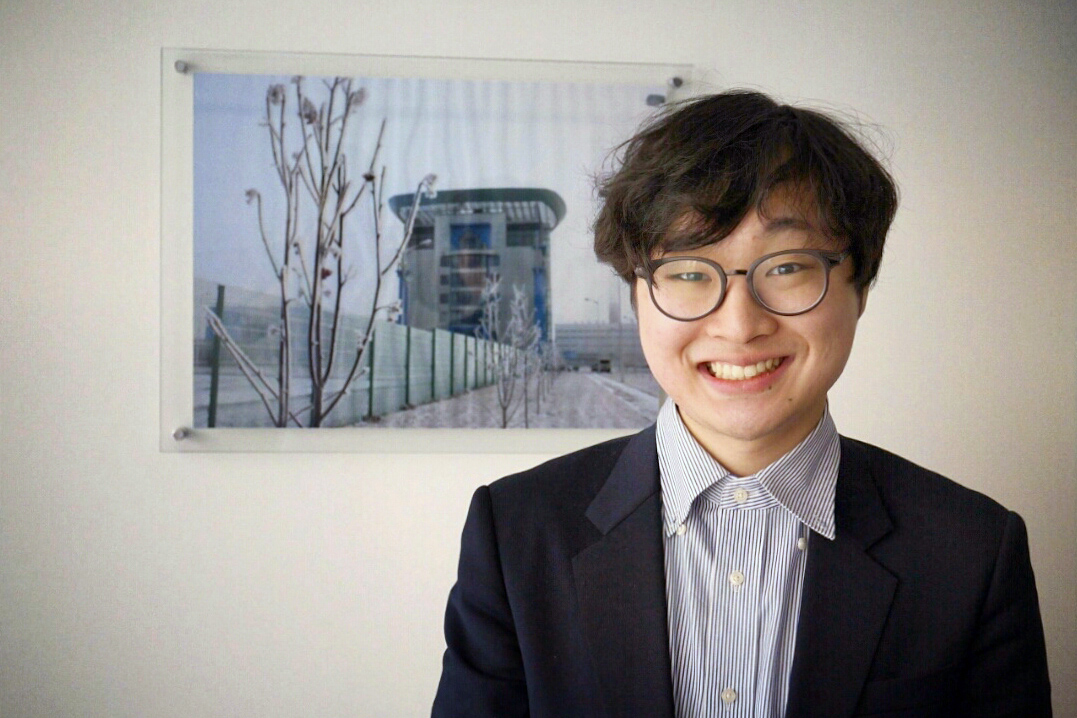International Students Invited to Apply to HSE’s Doctoral Schools
Admissions to tuition-free doctoral studies at HSE open on February 01, 2018. International students can choose from 15 PhD programmes in fields ranging from Mathematics to Art and Design. The programmes are offered at HSE campuses in Moscow, Saint Petersburg, and Nizhny Novgorod. It is not necessary to speak Russian in order to pursue a PhD at HSE – the thesis can be written in English. Several international students are already pursuing doctoral degrees at HSE and one of them, Keunwon Choi from South Korea, has shared his impressions with us.
Keunwon Choi was born in South Korea and then moved with his parents to Samarkand, Uzbekistan, where he grew up. He finished school in 2008 and entered Moscow State University, where he studied Behavioural Economics at the Faculty of Economics. ‘In my term papers and my thesis, I referenced work by Nadezhda Lebedeva and Alexander Tatarko several times,’ remarks Keunwon. ‘I was told that HSE was offering a Master’s programme with full-tuition scholarships from the Russian government. I found these amazing scientists at the Faculty of Psychology (now the Faculty of Social Sciences, in the School of Psychology). The two of them were heading the Master’s programme in Applied Social Psychology.’
 Keunwon Choi, HSE Doctoral School of Psychology
Keunwon Choi, HSE Doctoral School of Psychology
Keunwon applied for the course and within a few weeks was invited to a Skype interview with Prof. Lebedeva and her colleague, Zarina Lepshokova. The interview went well and he was accepted into the Master’s programme, following which he began working on his PhD under the supervision of Alexander Tatarko. Keunwon is now in the third year of his doctoral programme in Psychology.
‘Initially I was interested in issues surrounding the unification of North and South Korea,’ says Keunwon. ‘I was sure that without an understanding of the psychology of the inhabitants of North Korea and the changes to their psychological behavior over nearly 70 years of such isolation, it wouldn’t be possible, or even right, to take economic or political measures. Many South Korean scientists – political scientists, economists and sociologists - compare the situation with Germany and predict that the tension will end. However, it’s completely different to Europe. In my research, I look at individual and cultural values and acculturation strategies. This is one of the key themes that I deal with.’
Keunwon’s main aim is to study the behaviour and reactions of the real inhabitants of North Korea, who, to the extent to which it is possible, are more or less satisfied with their lives and the domestic economic situation. He wishes to identify scientifically significant ties between the micro and macroeconomic attitudes of North and South Koreans.
Many young Russians, especially students and teachers at HSE, are very open to foreigners. They are part of a particular group of people, most of whom can interact freely in English and who know at least one other foreign language.
Keunwon remarks that he, as a doctoral student, is less dependent on teachers and course work than when he was doing his Master’s, which he considers to be the first step towards scientific life and independent, creative research. The key thing to remember, according to Keunwon, is that ‘pursuing doctoral studies is a battle with oneself.’ In addition to studying, Keunwon is also working as a freelance translator and interpreter. He has already had an enjoyable experience interpreting at various international conferences and forums.
Keunwon believes that studying in Russia, in Moscow, is extremely interesting and a good choice. ‘Moscow is a metropolis full of people from different backgrounds and cultures. If you don’t speak Russian, people might not be very keen to talk to you. Many locals can’t speak English well; some can’t speak it at all. You might also have to deal with some arrogance at times. However, many young Russians, especially students and teachers at HSE, are very open to foreigners. They are part of a particular group of people, most of whom can interact freely in English and who know at least one other foreign language. So, if I was asked where I want to study in the next life, I would still choose Moscow.’
Upon finishing his studies, Keunwon plans to build his academic career, studying migrants, refugees, and the situation on the Korean Peninsula from a social psychological and economic theoretical perspective. He also plans to launch his own business project, developing international relations between Russia and South Korea. It goes without saying that an in-depth knowledge of psychology and economics will come in extremely handy.
Application deadline for tuition-free studies is March 31, 2018. Regular admissions deadlines are March 15 (first round) and September 14 (second round).

